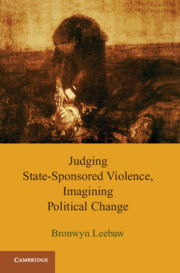Book contents
- Frontmatter
- Contents
- Acknowledgments
- 1 Introduction: Transitional Justice and the “Gray Zone”
- 2 Human Rights Legalism and the Legacy of Nuremberg
- 3 A Different Kind of Justice: South Africa's Alternative to Legalism
- 4 Political Judgment and Transitional Justice: Actors and Spectators
- 5 Rethinking Restorative Justice
- 6 Remembering Resistance
- 7 Conclusion: The Shadows of the Past
- Select Bibliography
- Index
- References
6 - Remembering Resistance
Published online by Cambridge University Press: 05 June 2012
- Frontmatter
- Contents
- Acknowledgments
- 1 Introduction: Transitional Justice and the “Gray Zone”
- 2 Human Rights Legalism and the Legacy of Nuremberg
- 3 A Different Kind of Justice: South Africa's Alternative to Legalism
- 4 Political Judgment and Transitional Justice: Actors and Spectators
- 5 Rethinking Restorative Justice
- 6 Remembering Resistance
- 7 Conclusion: The Shadows of the Past
- Select Bibliography
- Index
- References
Summary
Anton Schmidt was a German officer under the Nazi regime who had aided Jewish partisans with forged papers and military supplies for several months before he was caught, arrested, and executed. Schmidt's story was told by Abba Kovner as part of his testimony before the Jerusalem court during the trial of Adolf Eichmann. In her report on the Eichmann trial, Arendt described Kovner's testimony as a cathartic and transporting experience, “like a sudden burst of light in the midst of impenetrable, unfathomable darkness.” The impact of the story was so powerful, adds Arendt, that among those who witnessed it, “a single thought stood out clearly, irrefutably, beyond question – how utterly different everything would be today in this courtroom, in Israel, in Germany, in all of Europe, and perhaps in all countries of the world, if only more such stories could have been told.”
Whereas Arendt lamented the dearth of stories about resistance to Nazism, Kader Asmal insisted that the South African Truth and Reconciliation Commission ought to have documented stories of resistance to apartheid, alongside testimony from victims and the confessions that were presented to the Amnesty Committee. In his 1995 volume on the TRC, Asmal, along with coauthors, Louise Asmal and Ronald Suresh Roberts, illustrate this point by recalling a book that Joe Slovo put together to honor the memory of his wife, Ruth First. Slovo and First were both leaders in the anti-apartheid movement, when First was assassinated by a bomb planted by state security forces.
- Type
- Chapter
- Information
- Judging State-Sponsored Violence, Imagining Political Change , pp. 145 - 171Publisher: Cambridge University PressPrint publication year: 2011



